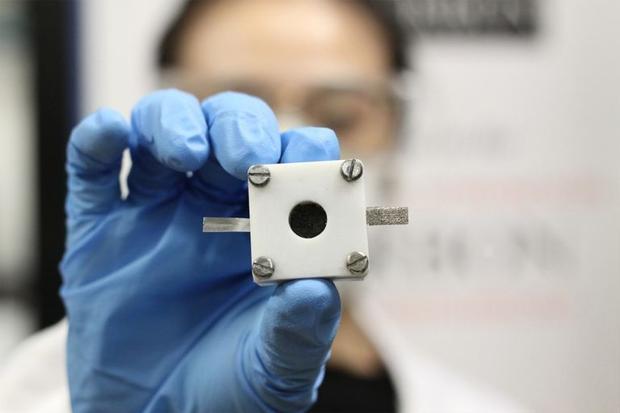Lithium-ion and lithium-polymer batteries face several problems: they are not making great leaps forward that we hope for, they occasionally burst into flame, and they weigh too much to be all that practical in a pure-electric airplane. Researchers peer over the alternatives, magnesium, manganese, aluminum, and now, after several false starts in recent years, zinc. University of Sydney scientists claim to have found a three-stage method of charging zinc-air cells that promises greater energy density and longevity. One selling point – the relative abundance and low cost of zinc, such cells are cheaper to produce than lithium equivalents. They theoretically can store up to five times more energy than lithium-ion cells, are less prone to burst into flame, and are even more environmentally friendly. What’s not to like? Until now, they’ve been difficult to recharge. ReVolt tried developing a rechargeable zinc-air battery with an ARPA-E (Advanced Research Projects Agency – Energy) grant, but gave up after two years. Explaining that …
An American ReVolt
ReVolt Technologies LLC, a Swiss battery company founded in 2004 as a spin-off of SINTEF, Norway, is moving its headquarters to Portland, Oregon. Initially targeting the consumer electronics market with their zinc/air battery (compare to the lithium/air batteries IBM is researching – see “Big Blue and Blue Sky Thinking” October 25, 2009) in a grant request to the U. S. Department of Energy for $30 million for research on making large format versions of the battery for vehicles. The company has an alliance with chemical giant BASF. ReVolt claims the following advantages over lithium batteries: A theoretical potential of up to 4 times the energy density of lithium-ion batteries at a comparable or lower production cost. Extended battery life due to stable reaction zone, low rates of dry-out and flooding, and no pressure build-up problems. Controlled deposition with no short-circuit, high mechanical stability. No need for bulky peripherals such as cooling fans or temperature control systems. Generally seen as primary …

